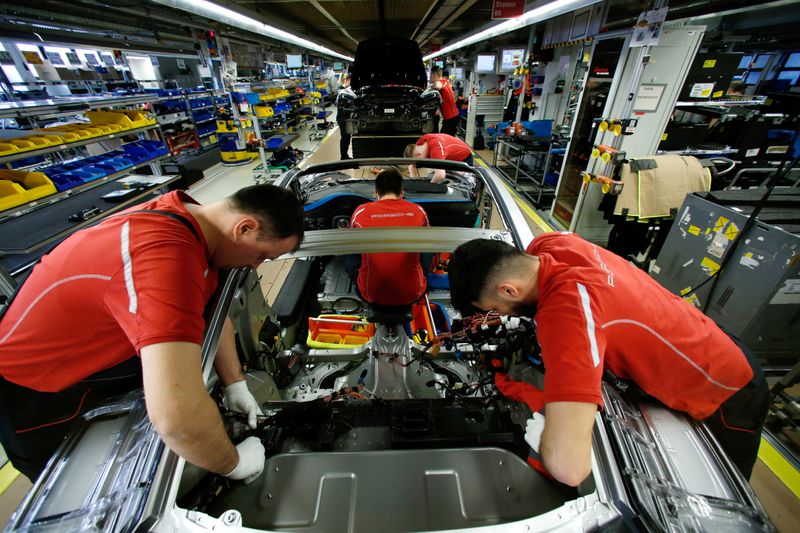BERLIN (Reuters) - Germany's export-dependent manufacturing sector contracted further in December as the rate of decline in production accelerated for the first time in three months, but output expectations rose slightly, a survey showed on Thursday.
IHS Markit's Purchasing Managers' Index (PMI) for manufacturing, which accounts for about a fifth of the economy, fell to 43.7 in December from November's five-month high of 44.1.
The final December reading was slightly above a flash reading of 43.4, but remained below the 50.0 mark separating growth from contraction for the 12th month in a row.
"Germany's manufacturing sector closed out 2019 with another weak performance and remains a thorn in the side of the economy," said Phil Smith, principal economist at IHS Markit.
"Sustained cuts to workforce numbers at factories continue to pose a threat to Germany's so-far solid consumer spending," he added.
With sales abroad hit by an adversarial trade climate, the bulk of Germany's growth momentum is being generated domestically, leaving it exposed to any weakening of the jobs market.
"Importantly, however, the forward-looking survey measures for new orders and output expectations both give off more positive signals as we move into the new year," Smith said.
"What's more, the U.S.-China 'Phase 1' trade deal and a potentially clearer path to Brexit make for a more settled backdrop on the international stage."
